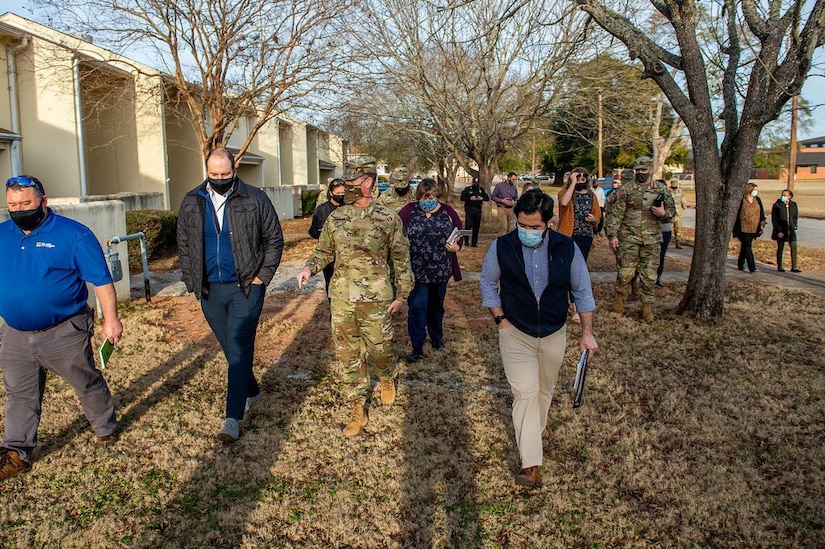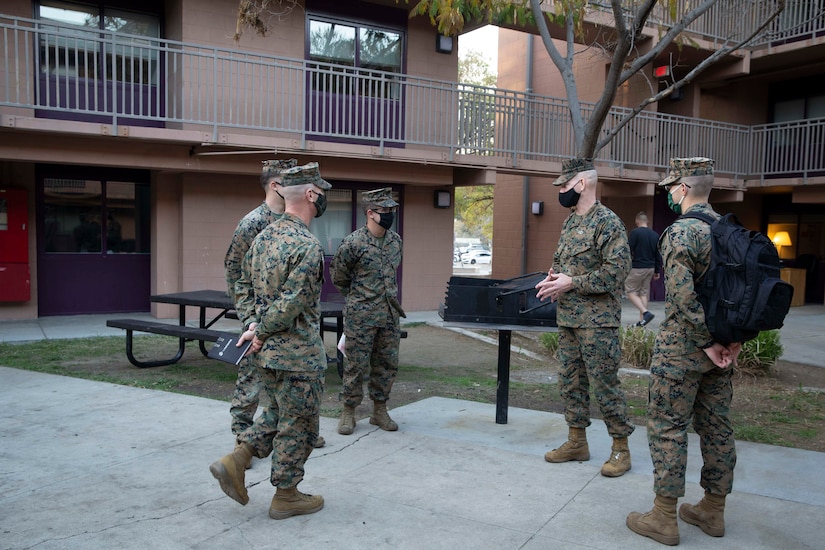Feb. 16, 2021 | , DOD News
Paul Cramer, principal deputy assistant secretary of defense for sustainment (installations), spoke today at a House Appropriations subcommittee on Military Construction, Veterans Affairs and Related Agencies. The topic was the Military Housing Privatization Initiative.
The military departments have increased their oversight of military housing by hiring more than 500 additional employees in the military housing offices, he said. These additional people are providing quality assurance, customer care services and advocacy for the residents.

Since the March 3, 2020, MHPI hearing before this subcommittee, the department has made significant progress in implementing MHPI reforms set out in the fiscal year 2020 and 2021 National Defense Authorization Acts, Cramer noted.
"We have worked to draw up department-wide privatization housing policies to reinforce and expand our programmatic oversight of MHPI housing projects," he said.
Among them are:
- Senior leader engagement to collaborate internally and with MHPI companies on housing issues;
- Taking necessary corrective actions to rebuild trust with military members and their families;
- Accountability at all levels within the department by the MHPI companies;
- Providing transparency and frequent communication with MHPI tenants; and
- Ensuring the long term financial viability of MHPI projects and the program.
Elizabeth A. Field, director, defense capabilities and management, Government Accountability Office, also testified at today's hearing.

Last year, GAO published a report in which it identified weaknesses in DOD management and oversight of MHPI.
"We made 12 recommendations to address the problems we found. And I'm pleased to report that as of today, DOD has either fully or partially implemented all of our recommendations and expects to complete the remaining work needed to implement them this year," she said.
Some of the key actions that the department has taken include:
- Instituting standardized quarterly reviews of the military department privatized housing portfolios, with a focus on quality and condition;
- Developing a process for collecting and calculating resident satisfaction data to ensure that these data are more accurate and consistently used;
- Establishing criteria for monitoring the financial viability of privatized housing projects and assessing risk;
- Issuing a Tenant's Bill of Rights;
- Developing a Common Lease Agreement; and
- Piloting an effort to provide tenants with seven years of their unit's maintenance history.
"Given the significance of MHPI to the department's commitment to provide safe, adequate housing to service members and their families, sustained attention will be warranted for many years to come," she said.








No comments:
Post a Comment